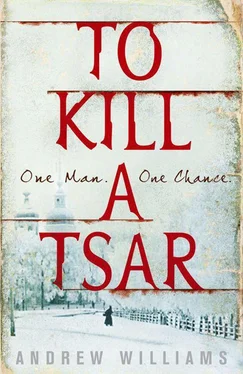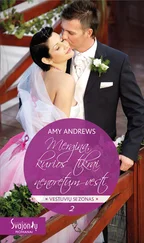Mikhailov frowned thoughtfully: ‘She doesn’t know a great deal. Some names…’
‘You, Goldenberg, Morozov, Kviatkovsky… here are the people they are most interested in…’ The man reached into his pocket and handed him a small square of paper.
Mikhailov glanced down the list of names: ‘Who is this Madame Romanko?’
‘Kharkov has sent her records through — early twenties, brown hair, blue eyes, attractive — meets the description of the woman seen leaving the Volkonsky mansion in your company. Don’t you know her? They suspect she may have been in the square with Soloviev when he missed.’
For a moment Mikhailov stared at the paper, then turned to his companion with a small smile: ‘Thank you, Nikolai. Thank you again.’
They spoke for a few minutes more only, the Director casting anxious glances around the church. Mikhailov told him of the conference that was to be held at Voronezh and of the new alliance he hoped to forge there: ‘But you, my friend, must stay here in Petersburg. It’s most important.’
The Director nodded.
‘And Dobrshinsky?’
‘He’s not popular. But he’s clever. He’s brought in new people — the major from the Gendarme Corps who was there when Popov shot himself.’
‘And your position — is it secure?’
‘Oh yes,’ said the Director with a little laugh. ‘Quite secure. I’m a good conservative. And the bits you feed me go down well.’
‘Good,’ said Mikhailov, getting to his feet. ‘And now I must go. Next time we must meet somewhere different. I’ll send word the usual way.’ Turning his back on his companion, he walked over to the bank of flickering candles and stood with his hands together waiting for the clunk of the closing door.
The city’s clocks were striking nine when Mikhailov stepped into the street once more. It was a ‘white’ Petersburg night when the sun hovers low on the horizon but does not set and the delicate pink and blue of early evening meets the dawn. A fresh breeze was blowing off the river and the city breathed easy again after the heat of the day. The streets about Nevsky were alive still with prosperous couples promenading in their summer finery, groups of inebriated students weaving noisily up and down the pavements, streetwalkers with an eye to Sunday business and the constant rattle and squeak of the horse-drawn trams and carriages. Mikhailov slipped in and out of the crowd unnoticed until he reached the cab rank in front of the Imperial Public Library. No matter the lateness of the hour, there was a task he wished to perform. It was going to put him to no small amount of trouble but it was quite impossible to ignore.
It was half past ten by the time he stepped on to the narrow wooden platform at the village of Alexandrovskaya. The schoolroom and adjoining house were set back a little from the main street, just five minutes from the station. Mikhailov walked slowly down the dusty lane, glancing left and right as if searching for a house. A sick-looking dog trotted hopefully towards him but there was no sign of its master or any other living soul, only the flicker of candlelight in windows and the distant rattle of a nightjar. The modest three-room schoolhouse was built of wood in the traditional manner and looked very like the rest of the village, if better cared for, with a coat of fresh green paint and a neat little garden, a honeysuckle twisting up the wall. From the lane he could see the smoky yellow glow of an oil lamp in the window. Anna was awake.
‘Who is it?’ she asked at the door.
‘It’s me. Alexander.’
‘Why are you here?’ But before he could answer, the door opened abruptly and she stood away from it to let him pass quickly inside: ‘Are they chasing you?’
‘I have important news.’
‘What’s happened?’ Her voice was taut with anxiety.
‘It’s all right. Don’t worry.’ He settled himself on her couch. ‘First, is there any tea?’
She stood staring at him. She must have been preparing to go to bed because the top of her white cotton blouse was hanging open, her hair loose about her shoulders, her feet bare.
‘The water’s still hot,’ she said reluctantly.
Mikhailov watched as she busied herself with the tea, admiring the curve of her bottom and thighs as she bent to light the samovar flame. Yes, other men would find Anna attractive, not a fashionable beauty, her nose a little broad, her brow a little dark and heavy, but handsome nonetheless, with a neat figure and striking blue eyes. Above all, there was lively but graceful purpose in her every gesture and movement that even a man who did not share her view of the world might recognise and admire.
‘You’ve put the picture on the wall, I see,’ he said.
‘Yes, do you like it there?’ she asked, without turning to face him. Her voice was calmer. It was a little watercolour of folk dancing he had given her, young Ukrainian men in traditional Cossack dress, twisting wildly to fiddle and flute. It was hanging close to the stove along with a cheap icon of the Virgin that the priest had left for her when she took the position. It was a simply furnished room with a few functional sticks of furniture, an old wooden table and four kitchen chairs, a basic range for cooking and heat, and drawn across the windows, smoke stained cotton curtains. The only piece that would be at home in a bourgeois drawing room was the couch Anna had bought for herself.
‘Well?’ she asked, a little coolly.
He held his breath for a moment as she leant forward to give him the glass of tea. Her eyes were darker blue in the dim lamplight. He watched her over the top of his glass as she turned to sit at the table.
‘I’ve been to see a friend I call “the Director”. It’s a joke we share. A code name, I suppose. His job is to guide the movement. I found him a year or so ago and helped him to his…’ he paused for a moment, searching for a discreet euphemism, ‘a special position.’
He sipped at his tea before continuing: ‘The Director says Madame Volkonsky will be arrested and questioned. She will give them some names, of course… no, sit down, please.’
Anna was half out of her chair: ‘Have you spoken to Vera and Evgenia?’
‘They’ve left for Voronezh. They’re safe for now. And you must go too. First thing tomorrow.’
‘But I don’t think Madame Volkonsky knows my name.’
‘My dear Anna,’ he said. He placed the glass on the floor at his feet then leant back with his arms folded across his chest and stared at her.
‘Well?’ She lifted her right hand to her lips nervously. ‘Why have you come?’
‘The most extraordinary coincidence. The police are looking for a mysterious woman with brilliant blue eyes, a fine figure, brown hair. Someone who seems to know me, someone very like you, but who goes by the name of Madame Romanko.’
‘Oh?’ said Anna, rising quickly to her feet. She turned her back on him and went over to the samovar, but not before he had noticed with amusement the colour rising in her neck and cheeks. After a few seconds’ silence she turned back to the table, careful to avoid his eye.
‘You know, I like you, Anna.’
She looked up at him and gave him an uncertain smile, her shoulders narrowing insecurely.
‘You and I are dedicated to the revolution, to sacrifice…’ Mikhailov eased himself on to the edge of the couch. ‘And we share that burden…’
‘Yes.’
He slowly got to his feet and walked over to the window, lifting the smoky curtain to one side to stare into the blue summer night. Then turning abruptly to face her again: ‘Are you married?’
‘That’s my concern.’ Her voice rang with cool defiance, but her face was pink with indignation and embarrassment.
‘Have you left him?’
Читать дальше












